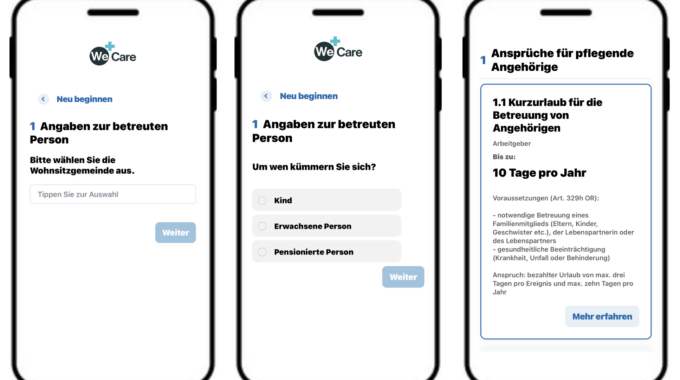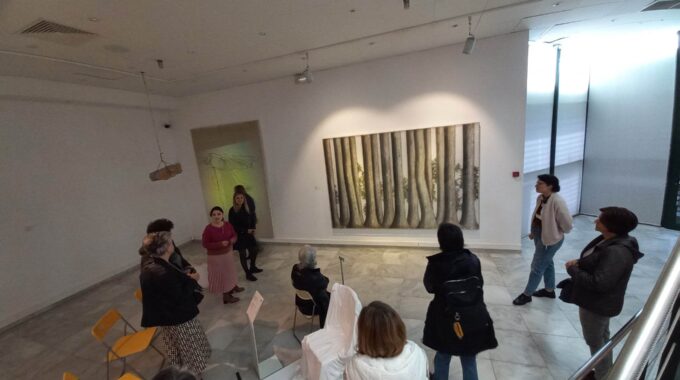
Doctoral thesis about working carers’ situation in Sweden
On January 20th, Joana Vicenté, a doctoral student within the Informal Carers, Care and Caring Group, headed up by Professor Elizabeth Hanson at Linnaeus University in Sweden, successfully defended her thesis entitled “Combining informal care with paid work – An exploration of working carers’ situation with regards to their health status, gendered patterns of care, support and the impact of the COVID-19 pandemic”.
– The purpose of my research was to describe the situation of working carers in Sweden. People who combine informal care with paid work constitute a group of carers with complex needs, which we don’t know so much about within a Swedish context. It can be said that they are exposed to double pressure, stress and responsibility, explains Joana Vicente.
Working carers may find it difficult to find balance in their lives. This is shown by the scoping review of previous research that Joana Vicente presented in her doctoral thesis. In her thesis, she identifies primary challenges of and solutions for the combination of paid work and informal care. But also secondary challenges that can arise when tackling the primary challenges.
– It can almost be described as a chain reaction. When you are tackling one challenge, other challenges can appear, says Joana Vicente.
For example, emotional stress and burnout constituted a primary challenge where the solution could be professional support. However, most health and social care services are provided during office hours, which can lead to a new challenge for carers who work during the day. The solution for this could be more flexible working hours or development of occupational healthcare to offer proactive support to working carers.
– I would like to see that occupational healthcare staff worked more preventively to identify working carers at an early stage of their caring situation. For example, they could be offered health advice and regular health check-ups to maintain or improve their health and well-being.
Remote working
More flexible working hours and/or the possibility to work remotely can also be a solution if working carers need to take care of a relative/someone close to them during office hours. But this requires understanding and solution-driven employers, notes Joana Vicente.
Based on the literature studies that were led by a fellow colleague Alice Spam, within the technology theme of the ESRC funded Sustainable Care Research programme (2018-2021, Principal Investigator, Professor Sue Yeandle, University of Sheffield), she and Joana Vicente created a conceptual framework of the range of challenges commonly facing working carers, how they interact with each other and possible solutions to better understand and manage the scenarios that working carers can face.
At least, 600 000 working carers in Sweden
In 2018, three out of four carers over the age of 18 in Sweden were working carers. This corresponds to around 600 000 adults. Working carers are therefore the largest group of informal carers in Sweden.
– The typical Swedish working carer is a middle-aged female, providing care on a weekly or daily basis to a non-cohabitant aged parent, says Joana Vicente.
National population survey
A major part of the research data within the thesis is taken from a major national population survey developed and administrated by The Swedish Family Care Competence Centre and Linnaeus University in 2018. In the questionnaire, participants answered a range of demographic questions how comprehensive their caringactivities efforts were, what care they provided and the type of support received (if any) and preferred sources of support. A total of 1093 respondents were informal carers and 818 of these were working carers.
The doctoral thesis highlights that despite a history of a generous welfare model provided by the State, in addition to a range of gender equalities in place, there nevertheless remain clear gender differences among working carers. Compared to their male counterparts, female working carers were more likely to provide more care, more often, more often alone, and experience care as more demanding and as an obstacle to their ability to work or study. At the same time, men received more carer support.
– I think this is the most surprising result that I experienced in my Phd thesis. Despite the fact that Sweden is a pioneer country in terms of gender equality and female participation in the labour market, such gender differences still exist.
One in six women had reduced their working hours and more than twice as many women as men had quit their jobs because of their caring role.
Decreased ability to work
The Phd thesis also takes a closer look at care-related factors that are connected with the experience of caregiving as demanding and reduced ability to work.
– A key finding was that psychological stress and financial problems due to caregiving increased the odds of experiencing caregiving as demanding and a reduced ability to work, while finding caregiving satisfying decreased the odds of both, says Joana Vicente.
Support efforts for working carers therefore need to be individually designed based on their preferences and experiences of how their situation is affected by caregiving. Targeted support, for example respite care in the home and individual counselling may help to mitigate the negative impact on carers’ health and well-being.
The thesis also shows that the care-recipient’s condition also affected the working carer’s ability to work.
– For example, working carers who cared for someone with mental ill-health experienced a reduced ability to work when compared to those who cared for someone with dementia.
Another important factor is the relationship between the carer and the care recipient. Those who experienced difficulties in their relationship with the care recipient, also indicate a reduced ability to work to a greater extent.
Experiences of caring during the COVID-19 pandemic
Joana Vicente also conducted a small-scale qualitative study to explore working carers’ experiences of combining informal care and paid work during the COVID-19 pandemic. This study consisted of semi-structured interviews with 14 working carers. Findings highlighted that the impact of the pandemic was not soley negative. Among other things, the pandemic contributed to the development of digital support and to the opportunity to work remotely for some working carers, which meant that there was more time over for the family and the care-recipient.
On the other hand, negative experiences included cancelled support from the municipality and fear of infecting their loved ones with the virus. A new work situation, with work from home and less contact with colleagues and managers, could also be perceived as difficult to manage.
Conclusion
Joana Vicenté hopes that her Phd results will have an impact on how future policies and practices concerning working carers are designed. The efforts should be tailored to their preferences and goals, she points out.
– A healthy working carer, who wants to take care of a family member or friend and has access to appropriate, individually designed, flexible support both in terms of their caring and work situation, should be the target of all policies and support efforts for and with working carers, says Joana Vicente.
Joana’s Phd supervisors included lead supervisor Professor Elizabeth Hanson, Linnaeus University (LNU), Nka, Professor Kevin McKee, Dalarna University, Associate Professor, Lennart Magnusson, LNU, Nka and Senior Lecturer, Pauline Johansson, LNU.
Joana’s doctoral opponent was Endowed Professor Henk Nies, Vrije University, the Netherlands and Vice-President Research, Eurocarers.
Text: Erik Skogh, Josefine Göransson, Elizabeth Hanson





